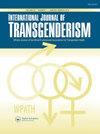Freezing for the future: Transgender youth respond to medical fertility preservation
Q1 Social Sciences
引用次数: 33
Abstract
Abstract Background: The medical community is paying increasing attention to the healthcare needs of adolescents diagnosed with gender dysphoria who desire medical interventions to bring their bodies and gender identity into alignment. Transgender (i.e. trans) youth initiating gender-affirming hormone treatment (estrogen for birth-assigned males, testosterone for birth-assigned females) after progressing through their endogenous puberty may experience impairment in gonadal function leading to infertility or biological sterility. Gamete cryopreservation (i.e. egg/sperm “freezing”) offers youth pursuing gender-affirming hormone treatment the potential for future biological parenthood. Aims: Given the dearth of qualitative research on trans adolescents considering fertility preservation measures, we sought to explore trans youth’s initial reactions to and opinions of currently existing technologies and their importance in medical decision-making. Methods: We conducted intensive semi-structured interviews with trans adolescents and young adults (n = 18) ages 15–24 about their gender-related medical care and decision-making processes around existing fertility preservation options. Results: In the course of analysis, three major themes recurred: (1) youth discussed a desire to decouple their reproductive biology from their gender, (2) youth felt limited by existing reproductive technologies and discussed imagined parenting futures enabled by anticipated scientific advancements, and (3) youth emphasized the role of their individual identity, personal experiences, and family relationships in decision-making about preserving eggs or sperm for future biological parenthood. Discussion: These findings suggest trans youth may have complex experiences with limitations presented by existing fertility preservation technologies. Providers tasked with assisting trans individuals and their families with decision-making about fertility preservation prior to medical transition may benefit from the diverse perspectives and opinions on these technologies offered by this younger population.为未来冷冻:变性青年对医学生育保存的反应
背景:医学界越来越关注被诊断为性别焦虑症的青少年的医疗保健需求,他们希望通过医疗干预使他们的身体和性别认同保持一致。跨性别(即跨性别)青少年在经历了内源性青春期后开始接受性别确认激素治疗(出生指定的男性使用雌激素,出生指定的女性使用睾酮),可能会导致性腺功能受损,导致不孕或生物不育。配子冷冻保存(即卵子/精子“冷冻”)为追求性别确认激素治疗的年轻人提供了未来生儿育女的可能性。目的:由于缺乏对考虑保留生育能力措施的跨性别青少年的定性研究,我们试图探讨跨性别青少年对现有技术的最初反应和意见,以及它们在医疗决策中的重要性。方法:我们对15-24岁的跨性别青少年和年轻人(n = 18)进行了密集的半结构化访谈,了解他们的性别相关医疗保健和现有生育保留选择的决策过程。结果:在分析过程中,反复出现了三个主要主题:(1)青年讨论了将其生殖生物学与性别分离的愿望;(2)青年感到现有生殖技术的限制,并讨论了预期的科学进步所带来的育儿未来;(3)青年强调了他们的个人身份、个人经历和家庭关系在为未来的生物学父母保留卵子或精子的决策中的作用。讨论:这些发现表明,跨性别青年可能有复杂的经历,受到现有生育能力保存技术的限制。负责协助跨性别者及其家庭在医疗转变前就保留生育能力做出决策的提供者可能会受益于这些年轻人群对这些技术提供的不同观点和意见。
本文章由计算机程序翻译,如有差异,请以英文原文为准。
求助全文
约1分钟内获得全文
求助全文
来源期刊

International Journal of Transgenderism
Social Sciences-Gender Studies
CiteScore
5.10
自引率
0.00%
发文量
0
期刊介绍:
International Journal of Transgenderism, together with its partner organization the World Professional Association for Transgender Health (WPATH), offers an international, multidisciplinary scholarly forum for publication in the field of transgender health in its broadest sense for academics, practitioners, policy makers, and the general population.
The journal welcomes contributions from a range of disciplines, such as:
Endocrinology
Surgery
Obstetrics and Gynaecology
Psychiatry
Psychology
Speech and language therapy
Sexual medicine
Sexology
Family therapy
Public health
Sociology
Counselling
Law
Medical ethics.
 求助内容:
求助内容: 应助结果提醒方式:
应助结果提醒方式:


